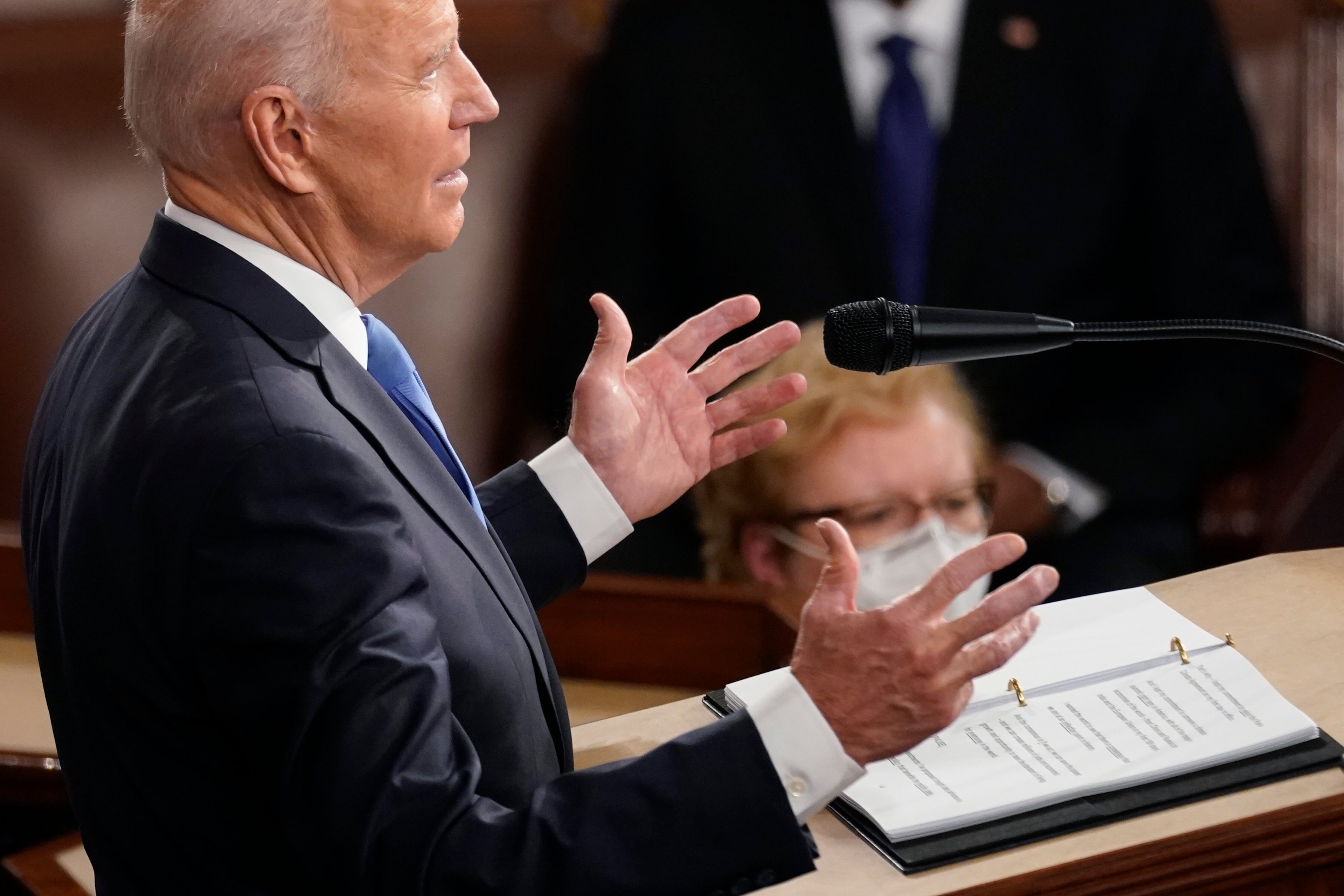The Independent's journalism is supported by our readers. When you purchase through links on our site, we may earn commission.
Biden doesn’t have a great approval rating — but it’s not because of his policies
The 46th president’s lackluster polling reflects a democracy coming apart at the seams


Joe Biden is not that popular. That’s not because he’s doing a poor job as president, though. There’s every reason to think he’s doing a good job as president. But doing a good job as president is no longer enough to make you very popular — which is a measure of how precarious our democracy is at the moment.
Biden’s approval rating has hovered around 53 to 54 percent for his presidency so far, according to 538’s polling aggregator. That’s a lot better than the historically unpopular Donald Trump, whose popularity started at a dismal 44 percent and dropped down to an even more lackluster 42 percent by the end of his first few months.
Compared to other presidents, though, Biden’s numbers aren’t very robust. The only president with worse approval than him at this point in his presidency was Gerald Ford, whose numbers cratered after pardoning Nixon. George W Bush and Bill Clinton had broadly similar numbers to Biden for the first few months of their presidency. Other than that, all presidents since Truman have had consistently higher approval than Biden to this point. Barack Obama’s approval was around 60 percent; John F Kennedy was at a stunning 83 percent.
Looking at Biden’s numbers in historical context, you’d think he was ineffective, or pushing unpopular policies. But that’s not the case. The economy under Biden has continued to struggle because of the pandemic, but it’s improving. The country added 916,000 jobs in March and the unemployment rate fell to 6 percent, its lowest since the pandemic began. The stock market is arguably the best bull market on record for the beginning of a presidential term.
Biden’s policies are also popular. His signature legislative achievement so far, the $1.9 trillion Covid stimulus package, has a remarkable 70 percent approval. His most recent major proposal is a tax on the wealthy, a policy with broad appeal. Voters also find Biden personally likable: His joint address to Congress this week received an 85 percent approval in one poll. More Democrats tuned in to see their president, skewing the sample somewhat, but it’s still a remarkable number.
So, if Biden is pursuing popular policies and if he himself is popular when he speaks, why isn’t his approval higher? The answer is that Republicans now simply won’t like a Democratic president. Biden is limited by partisanship.
Partisanship has been increasing for decades. A Pew study found that between 1994 and 2017, the gap between Republicans and Democrats on ten key issues increased from 15 to 36 points. The rise in partisanship has largely eliminated the honeymoon period of bipartisan approval that presidents used to have at the beginning of their term. In fact, Biden has the biggest gap between Democrats and Republicans in approval rating in Gallup’s history of presidential polling over his first 100 days, with 96 percent of Democrats approving versus 11 percent of Republicans. Yes, that’s even larger than Trump, who had 86 percent approval from Republicans and 9 from Democrats.
Staistical analyst G Elliot Morris argues that because of partisanship, there is now a harder ceiling on presidential approval. Presidents like Johnson, Nixon, and Kennedy got broad support even from the opposite party, but there is simply no way for Biden to do that in the current climate. Given that, Morris says, Biden’s approval is “really pretty good.”
But what may be good for Biden may not be so great for the country as a whole. In the past, a president who passed popular policies and had a blockbuster approval ratings could lift his party’s fortunes and win elections. These days, however, the best presidential approval is much lower, and is therefore unlikely to sweep a party to an election victory.
Worse, Republicans have huge built-in advantages. In particular, they have a major structural leg up in the Senate, where rural white states with low populations elect disproportionate representatives. Republicans currently hold 50 seats in the Senate even though those seats represent just 43 percent of the population. The Electoral College, the House of Representatives, and state legislatures are all tilted towards Republicans too. And that’s even before you consider Republican efforts to disenfranchise anyone who is unlikely to vote for them.
Democrats are in a position where they need a landslide to govern. And with increased partisanship, landslides are increasingly impossible. Even though Biden is very well-liked, even though he is passing popular policies, even though the economy is recovering and his vaccination program has been a huge success, his popularity remains good but not great. That means Democrats will struggle to hold the House and Senate in the midterms. And that in turn means that Biden may not be able to continue to pass popular policies, and won’t be able to do things like protect voting rights.
Biden has been a surprisingly successful president in many ways. But partisanship and structural weaknesses means it will be hard for him to convert that success into electoral victories. This should worry everyone. A democracy in which a party that passes popular policies can’t win elections is a democracy that is not going to be a democracy for long.
Join our commenting forum
Join thought-provoking conversations, follow other Independent readers and see their replies
Comments
Bookmark popover
Removed from bookmarks